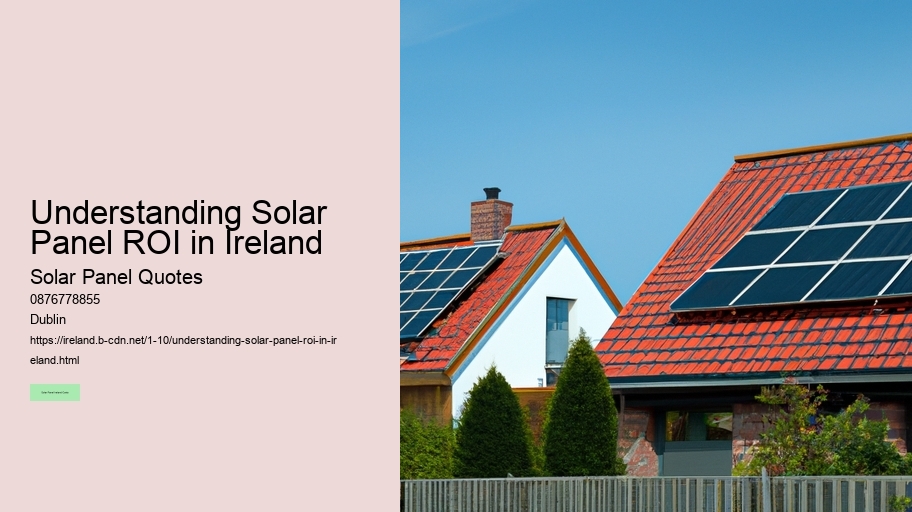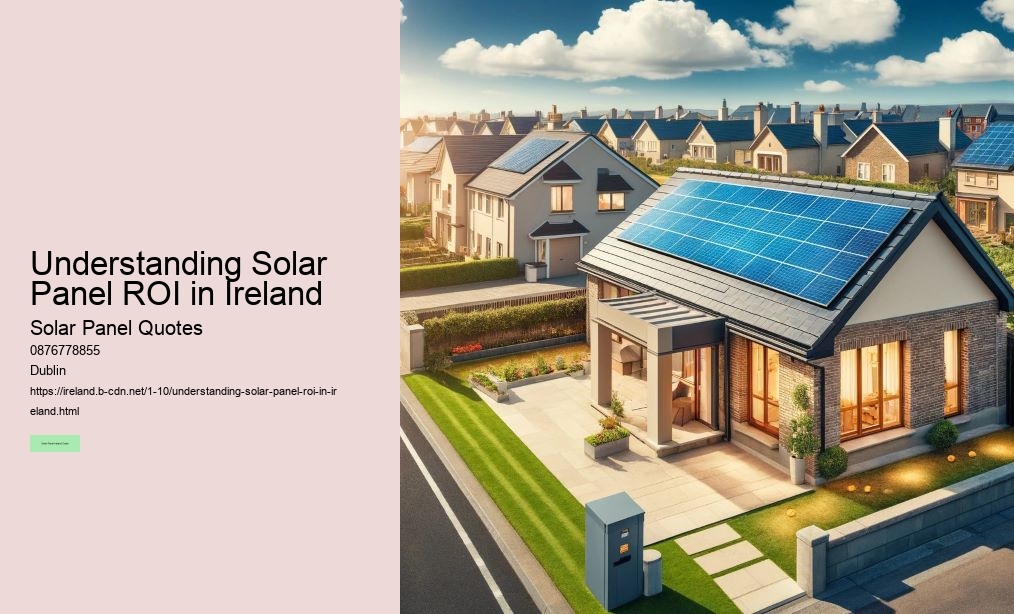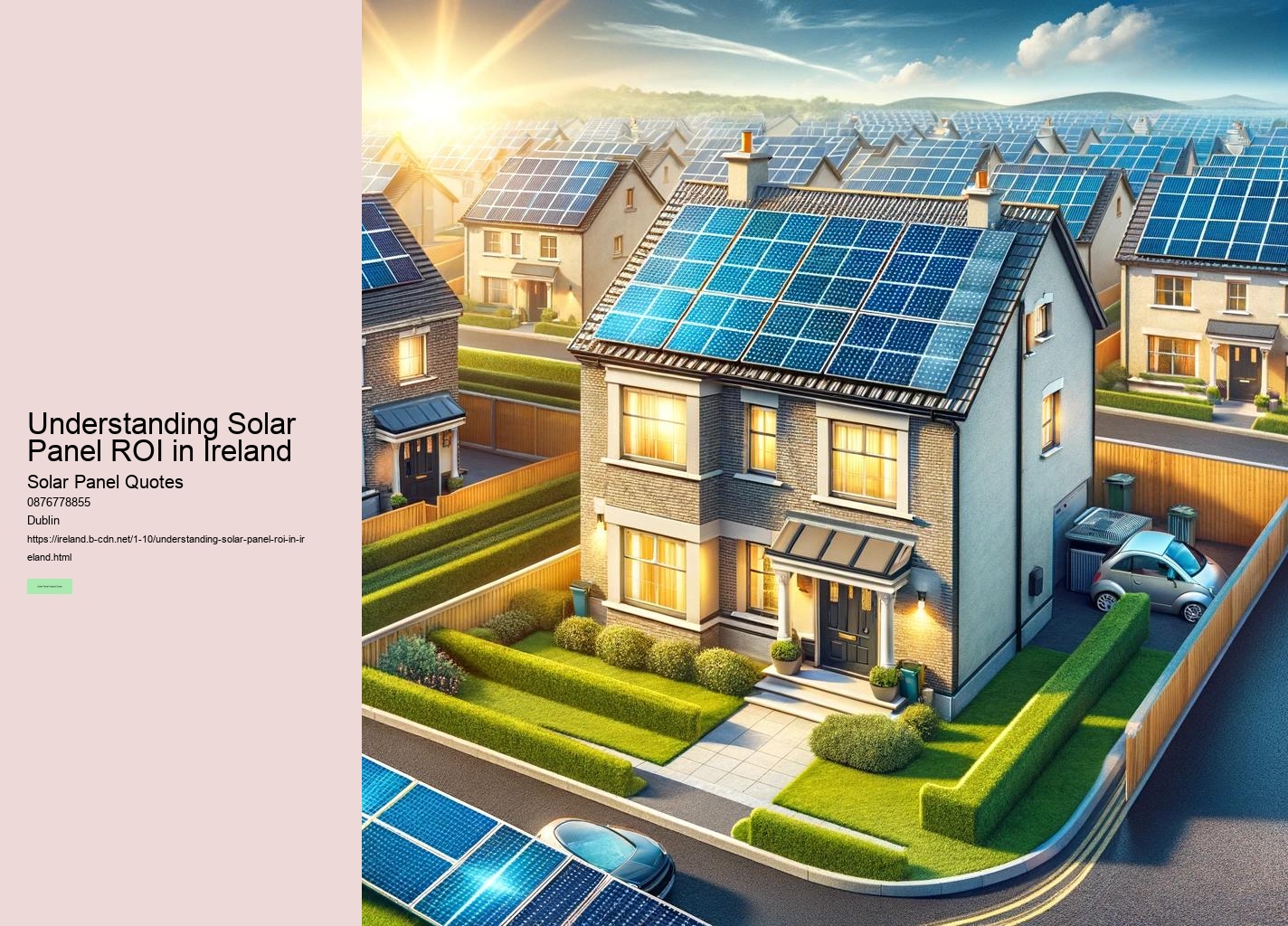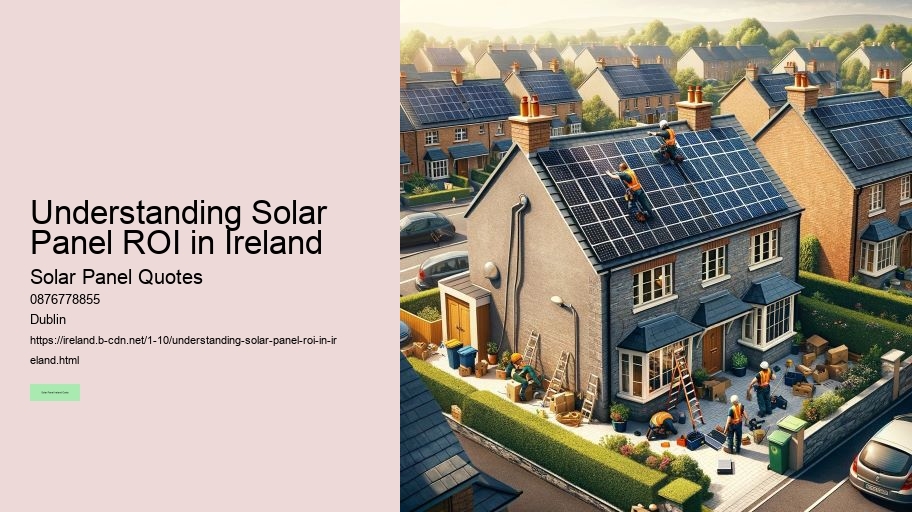

Modern rechargeable batteries are scalable, enabling homeowners to start small and expand as needed. Questions: checkout solar panel Ireland cost for Solar Panel Quotes. Monocrystalline silicon panels, known for their efficiency and longevity, are ideal for properties with limited roof space. Thin-film solar cells may suit specific installations or areas with shading. With a smart meter installed, homeowners can monitor their electricity production and consumption, optimizing usage and savings.
Polycrystalline silicon panels provide a more economical option, though with slightly reduced efficiency. Investing in solar panels is a decision that benefits both your household and the planet. The payback period for solar panels in Ireland typically ranges from five to seven years, depending on the size of the system, energy consumption, and available grants.
As Ireland continues to prioritize sustainable energy solutions, more homeowners are exploring solar power as a way to reduce energy bills and support environmentally-friendly practices. When discussing solar panels in Ireland, cost is a key consideration for homeowners and businesses interested in renewable energy.
In addition to financial benefits, solar panels contribute to lowering greenhouse gas emissions and reducing the carbon footprint of homes and businesses.

By producing their own electricity, they reduce dependence on the electrical grid and contribute to Ireland's sustainable energy development. They also complement electric vehicles and battery chargers, offering a cohesive solution for sustainable energy needs.
On average, the cost of solar panels in Ireland ranges from €6,000 to €18,000, with several factors influencing the final price.
By harnessing sunlight to generate electricity, solar systems decrease reliance on fossil fuels and support the shift toward renewable energy sources.
The payback period for solar panels in Ireland ranges from five to seven years.
As energy prices continue to rise and climate concerns grow, solar panels provide a forward-thinking solution to power your home efficiently and sustainably. The payback period for solar panels in Ireland is typically between five and seven years.
Solar water heating systems, for instance, use thermal solar collectors to heat water, reducing the reliance on electric heating or gas boilers.
The environmental benefits of solar energy extend beyond reducing electricity bills.
Solar panels offer a practical and environmentally friendly way to lower electricity bills, reduce dependence on fossil fuels, and contribute to sustainable energy practices.


For instance, they can support water heating systems, reducing reliance on traditional electric heating or gas boilers.
This combination can help meet both electricity and hot water heating needs. The installation cost depends on various elements, including the number of panels required to meet your household's energy consumption, the type of solar panels used, and optional features like energy storage.
Financial support is available through the Sustainable Energy Authority of Ireland (SEAI), offering grants of up to €2,400 for solar panel installations.
Energy storage is an important consideration for those investing in solar panels.
Additionally, they support the heating of water for domestic use, further reducing overall energy consumption.

These measures reflect Ireland's commitment to sustainable development and encourage more homeowners to transition to renewable energy. Solar systems also complement other energy-saving technologies. These systems often integrate with boilers and smart meters to optimize energy use.
One of the most attractive aspects of solar panels is their payback period. By investing in solar energy, homeowners contribute to the planet's well-being while positioning their properties as forward-thinking and environmentally responsible.
For those concerned about power outages, energy storage systems, such as a rechargeable battery or home energy storage system, provide an excellent solution. Whether you're considering solar panels for a home in Dublin or a rural property, the benefits extend beyond financial savings to include contributions to sustainable energy practices and reduced reliance on fossil fuels.
Adding features such as shading optimizers or higher-capacity inverters can improve system performance but may slightly increase the initial cost. Regular cleaning to remove dirt or debris and occasional inspections to ensure optimal performance are generally sufficient.

Monocrystalline panels are made from a single crystal structure and are more efficient, while polycrystalline panels are made from multiple crystal fragments and are more cost-effective.
Yes, given the rising cost of electricity and the availability of government incentives, solar panels are a financially sound and sustainable investment in Ireland.
Yes, the Irish government offers several incentives, including SEAI grants and a reduction in VAT on solar equipment to promote solar energy adoption.